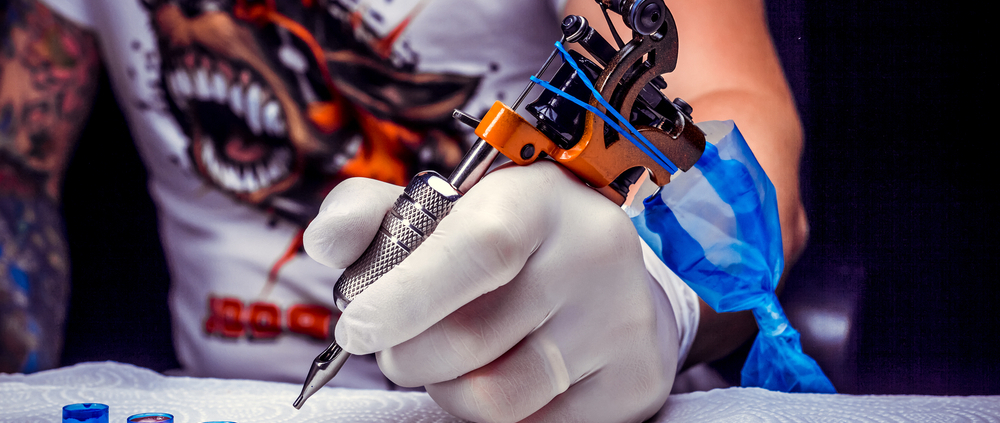Pennsylvania Tattoo Laws: What You Need to Know Before Getting a Tattoo
Tattoos are a form of body art that involves injecting ink into the skin to create permanent designs. Tattoos can be a way of expressing oneself, commemorating an event or person, identifying with a group, or enhancing one’s appearance. However, tattoos are also subject to laws and regulations that vary from state to state. In this article, we will explore the Pennsylvania tattoo laws, and what you need to know before getting a tattoo in the Keystone State.
Pennsylvania Tattoo Laws for Customers
The main law that governs tattooing in Pennsylvania is the 2001 Micropigmentation Law1, which prohibits tattooing of persons under 18 years of age unless they have the written consent and presence of a parent or legal guardian. This means that you have to be at least 18 years old to get a tattoo in Pennsylvania or have the permission and presence of a parent or guardian if you are 16 or 17 years old. You also have to provide a valid ID to prove your age and identity.
The 2001 Micropigmentation Law also requires tattoo artists and shops to obtain the consent and identification of the customers and to keep a record of their personal and tattoo information. This means that you must sign a consent form and provide your name, address, phone number, date of birth, and a description of the tattoo you want. You also have to provide a copy of your ID to the tattoo artist or shop.
The 2001 Micropigmentation Law also requires tattoo artists and shops to provide customers with aftercare instructions and information and to advise them on the risks and complications of getting a tattoo. This means you have to receive a written or verbal explanation of how to take care of your tattoo, and what to do in case of infection, allergic reaction, or other problems. You also have to be informed of the possible side effects and consequences of getting a tattoo, such as pain, bleeding, scarring, fading, or regret.
Pennsylvania Tattoo Laws for Artists and Shops
The main law that governs tattooing in Pennsylvania is the 2001 Micropigmentation Law, which does not require tattoo artists and shops to have a license, certification, or accreditation to operate. However, tattoo artists and shops must follow the standards of hygiene, sterilization, and safety, as set by the Pennsylvania Department of Health2. These standards include:
- Using sterile, disposable, and state-of-the-art equipment, such as needles, tubes, gloves, and ink cups
- Cleaning and disinfecting the work area and tools before and after each tattoo session
- Wearing gloves and masks while performing tattoo procedures
- Disposing of the used equipment and materials in a proper and safe manner
- Keeping the tattoo area clean, dry, and covered with a bandage or dressing
- Reporting any cases of infection, disease, or injury to the Department of Health
The 2001 Micropigmentation Law also requires tattoo artists and shops to obtain the consent and identification of the customers and to keep a record of their personal and tattoo information. This means that tattoo artists and shops have to ask for the customer’s ID and to make a copy of it. They also have to ask the customers to sign a consent form, and to provide their name, address, phone number, date of birth, and a description of the tattoo that they want to get. They also have to keep these records for at least two years.
The 2001 Micropigmentation Law also requires tattoo artists and shops to provide customers with aftercare instructions and information and to advise them on the risks and complications of getting a tattoo. This means that tattoo artists and shops have to give the customers a written or verbal explanation of how to take care of their tattoo, and what to do in case of infection, allergic reaction, or other problems. They also have to inform the customers of the possible side effects and consequences of getting a tattoo, such as pain, bleeding, scarring, fading, or regret.
Conclusion
Tattooing is a popular and artistic form of expression, but it is also subject to laws and regulations that vary from state to state. In Pennsylvania, the main law that governs tattooing is the 2001 Micropigmentation Law, which prohibits tattooing of persons under 18 years of age, unless they have the written consent and presence of a parent or legal guardian. The law also requires tattoo artists and shops to follow the standards of hygiene, sterilization, and safety, as set by the Pennsylvania Department of Health. The law also requires tattoo artists and shops to obtain the consent and identification of the customers and to keep a record of their personal and tattoo information. The law also requires tattoo artists and shops to provide customers with aftercare instructions and information and to advise them on the risks and complications of getting a tattoo.
If you are planning to get a tattoo in Pennsylvania, you should be aware of these laws and regulations, and make sure that you comply with them. You should also choose a reputable and professional tattoo artist and shop, who can offer you high-quality ink and equipment, and a clean, comfortable, and safe environment. One of the best tattoo artists and shops offering these services is Oracle Tattoo Gallery, the best tattoo shop in Philadelphia, PA. Oracle Tattoo Gallery can offer you a team of professional, experienced, and friendly tattoo artists, who can cater to any style, preference, or budget. Oracle Tattoo Gallery can also offer you free consultations, where you can discuss your tattoo vision, design, size, color, placement, and price. Oracle Tattoo Gallery can also give you the tattoo of your dreams, whether it is black and white or colorful, simple or complex, small or large.
To book an appointment with Oracle Tattoo Gallery, you just need to visit their website, and call them at 215-638-1601. Oracle Tattoo Gallery looks forward to hearing from you and giving you the best tattoo experience possible.



